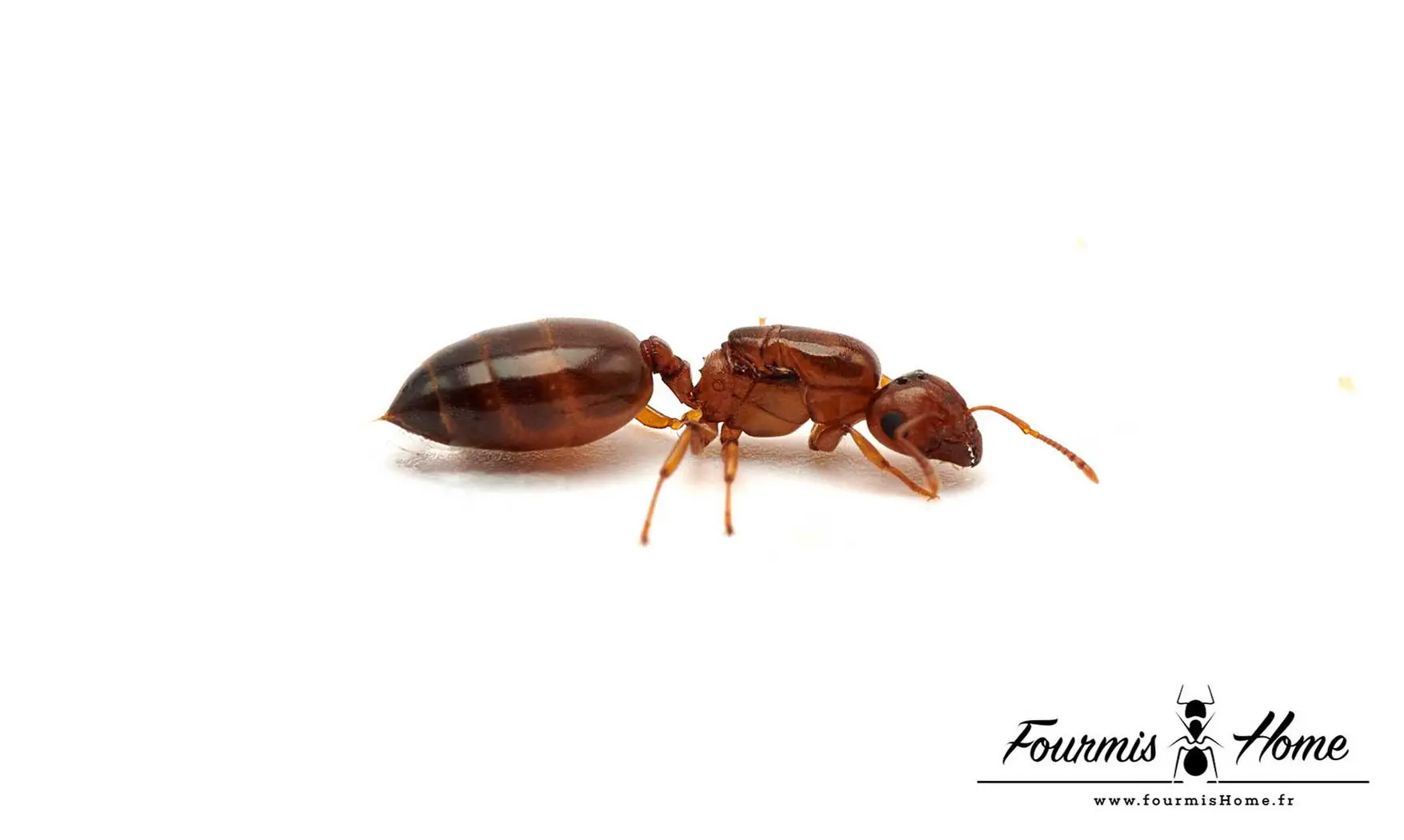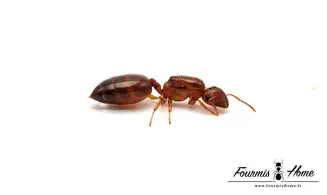

Crematogaster SP SENEGAL
Reference : CRFOUR-005
99.90€
Available
0 in stock
Latin name: Crematogaster sp Senegal
Taxonomy: Subfamily: Myrmicinae Tribes: Crematogastrini
Breeding level: Beginner
Geographical distribution: SP Senegal
Habitat: Clear pine forests
Colony form: Monogyne
Queen: Size: 8 - 9mm Color: Light brown head and thorax and dark brown abdomen
Workers: Size: 3 - 5mm Color: Light brown head and thorax and dark brown abdomen
Soldier: No
Male: Size: 3 - 5mm Color: Brown
Food: Honeydew and insectivores, such as mealworms, flies, mosquitoes, crickets etc ...
Humidity: Hunting area: 30 - 50% Nest: 50 - 70%
Temperature: Hunting area: 25 - 30 ° C Nest: 22 - 28 ° C
Hibernation: Yes, from the end of November to the beginning of March between 12 and 15 ° C
Type of nest: Plexiglas nest, nest with tubes, reconstituted stone nest.
Description: This species is said to be “nesting in the woods” or “lignicolous” (which lives in the woods) or even an “acrobat” because they defend themselves by a particular means. Indeed, they have the ability to be able to raise their abdomen above their heads and bead (create) at the end of their sting a droplet of venom containing acetic acid. The vaporized acetic acid acts as an alarm: the worker who emits the venom warns other workers of danger. The period between laying and the appearance of the worker is long, it will be necessary to wait until the first fortnight of workers to see the growth accelerate. They all have an ace of spades shaped abdomen. This wood ant breeds aphids (in nature) in order to feed on sugary liquids.
Development: Swarming from the beginning of August to the end of September.
Foundation: takes place in a cloistered manner (without food) Development: 30 days from egg to worker (depending on temperature)
Colony size: Up to 30,000 individuals, the queen can reach the age of 12 years.
Taxonomy: Subfamily: Myrmicinae Tribes: Crematogastrini
Breeding level: Beginner
Geographical distribution: SP Senegal
Habitat: Clear pine forests
Colony form: Monogyne
Queen: Size: 8 - 9mm Color: Light brown head and thorax and dark brown abdomen
Workers: Size: 3 - 5mm Color: Light brown head and thorax and dark brown abdomen
Soldier: No
Male: Size: 3 - 5mm Color: Brown
Food: Honeydew and insectivores, such as mealworms, flies, mosquitoes, crickets etc ...
Humidity: Hunting area: 30 - 50% Nest: 50 - 70%
Temperature: Hunting area: 25 - 30 ° C Nest: 22 - 28 ° C
Hibernation: Yes, from the end of November to the beginning of March between 12 and 15 ° C
Type of nest: Plexiglas nest, nest with tubes, reconstituted stone nest.
Description: This species is said to be “nesting in the woods” or “lignicolous” (which lives in the woods) or even an “acrobat” because they defend themselves by a particular means. Indeed, they have the ability to be able to raise their abdomen above their heads and bead (create) at the end of their sting a droplet of venom containing acetic acid. The vaporized acetic acid acts as an alarm: the worker who emits the venom warns other workers of danger. The period between laying and the appearance of the worker is long, it will be necessary to wait until the first fortnight of workers to see the growth accelerate. They all have an ace of spades shaped abdomen. This wood ant breeds aphids (in nature) in order to feed on sugary liquids.
Development: Swarming from the beginning of August to the end of September.
Foundation: takes place in a cloistered manner (without food) Development: 30 days from egg to worker (depending on temperature)
Colony size: Up to 30,000 individuals, the queen can reach the age of 12 years.

